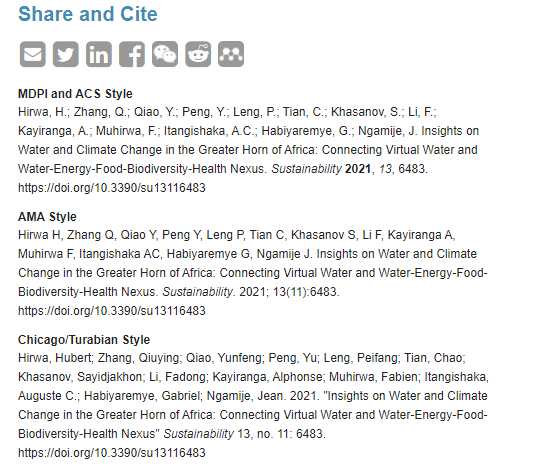Abstract:
Water is the key limiting factor in socioeconomic and ecological development, but it is adversely affected by climate change. The novel virtual water (VW) concept and water, energy, food, biodiversity, and human health (WEFBH) nexus approach are powerful tools to assess the sustainability of a region through the lens of climate change. Climate change-related challenges and water are complex and intertwined. This paper analyzed the significant WEFBH sectors using the multicriteria decision-making (MCDM) and analytic hierarchy process (AHP) model. The AHP model demonstrated quantitative relationships among WEFBH nexus sustainability indicators in the Greater Horn of Africa countries. Besides, the net VW imports and water footprints of major staple crops were assessed. The composite WEFBH nexus indices varied from 0.10 to 0.14. The water footprint of crops is increasing period by period. The results also revealed that most countries in the study area are facing WEFBH domains’ unsustainability due to weak planning or improper management strategies. The strong policy constancy among the WEFBH sector is vital for dissociating the high-water consumption from crop production, energy, environmental, and human health system. Thus, this study enhances insights into the interdependencies, interconnectedness, and interactions of sectors thereby strengthening the coordination, complementarities, and synergies among them. To attain sustainable development, we urgently call all public and private entities to value the amount of VW used in their daily activities and design better policies on the complex WEFBH nexus and future climate change.

Copyright by:

Read full publication here.
